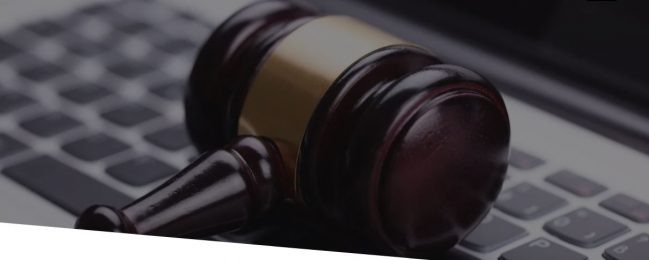Colorado Nonprofits Will Appeal Ruling That Endangers Donor Privacy
by Matt Miller
February 14, 2019
Last week, the Goldwater Institute represented two nonprofit organizations—the Colorado Union of Taxpayers Foundation and the TABOR Committee—in a Denver bench trial in Denver, Colorado with implications for privacy, free speech, and the public’s “right to know” the identities, occupations, and employers of nonprofit donors. As I discussed last week, the centerpiece of the trial was testimony from four different individuals who have worked in the nonprofit world for decades—testimony that centered on various forms of ideological harassment that each of them has endured over the years. I won’t recount that testimony here since it was the central element of my earlier post, but suffice it to say that the testimony was vivid, compelling, and painted a troubling picture of what some nonprofit employees endure at the hands of people who disagree with them.
The question at the trial was: Can nonprofit donors be forced to endure similar harassment and intimidation simply for supporting causes they believe in? That question is raised by a Denver law (and similar laws in Santa Fe, Phoenix, and Tempe, Arizona) that requires nonprofit groups to disclose donors’ identities to the government whenever those groups spend more than $500 to support or oppose a local ballot measure. If a group spends more than $500 on Facebook ads, postcards, newspaper ads, a website, a YouTube video, or any other method of communicating with voters, that group must file a long series of reports, which must include the name and address of anyone giving more than $50 to fund the effort, and the employer and occupation of anyone giving more than $200. Denver then posts this information on the Internet, forever accessible to the public.
Talk to most nonprofit groups, and they will tell you the same thing: “If disclosing our donors is the price for speaking, we will choose to remain silent.” Indeed, that is exactly what the plaintiffs said in the Denver trial. But this is really no choice at all. Nonprofits are being forced to choose between two equally unconstitutional options—silence, or disclosing the personal information of their supporters.
Everyone understands that censorship is unconstitutional. But so is forced disclosure of supporters. Publishing someone’s name, address, occupation, and employer on the Internet, and linking that information to a particular ideological cause—like support for abortion rights, or support for gun rights—exposes that person to the risk of harassment by people opposed to the causes they support. That is what last week’s testimony was about. It showed that there are people out there who are willing to spit on you, throw a football-sized rock through the window of your car, and ask if you “know what you’ll find when you get home tonight”—just because they disagree with you.
Unfortunately, the plaintiffs lost the trial on standing grounds. The court did not reach the merits of the challenge. Instead, the court ruled that the nonprofit groups had not yet been prosecuted under the law and that—despite substantial testimony to the contrary—they had not shown they were likely to run afoul of the law in the near future. The plaintiffs will appeal this ruling because it is contrary to established free-speech standing doctrine, which says that someone need not wait until they are censored before they can challenge a law that violates their right to free speech.
To understand why pre-censorship challenges are permitted, consider another Goldwater Institute case in Santa Fe, New Mexico. The plaintiff in that case, the Rio Grande Foundation, ran afoul of Santa Fe’s donor-disclosure law when the Foundation promoted a website and YouTube video encouraging voters to reject a proposed soda tax. The Foundation was ultimately hauled before the city’s Ethics & Campaign Review Board for a miniature trial, then censured and order to disclose its donors.
The soda tax issue represented the first time the Foundation engaged on a Santa Fe ballot measure. The first time it spoke to Santa Fe voters, it ran afoul of the law. If the Foundation had known about the Santa Fe ordinance before it spoke, the group would have been permitted to challenge the ordinance as a violation of the First Amendment (which it has subsequently done). A pre-enforcement challenge would have allowed the Foundation to ensure that it would never have to disclose its donors.
That is precisely what the plaintiffs in the Colorado case were trying to do. They testified that they would like, and were likely, to work on future Denver ballot measures. And they testified that they could and would spend more than $500 to do so. But this testimony did not convince the trial court, which applied traditional standing rules to their claims, rather than the specialized rules that exist to protect free-speech rights before a speaker is forced to make an unconstitutional choice.
The CUT Foundation and the TABOR Committee will be appealing the trial court’s decision. Their case—like the Santa Fe case—will help ensure that Americans cannot be forced to put their information on a government list simply because they choose to support a cause they believe in.
Matt Miller is a Senior Attorney at the Goldwater Institute. He represents the plaintiffs in Colorado Union of Taxpayers Foundation v. City of Denver.

Leave a Reply